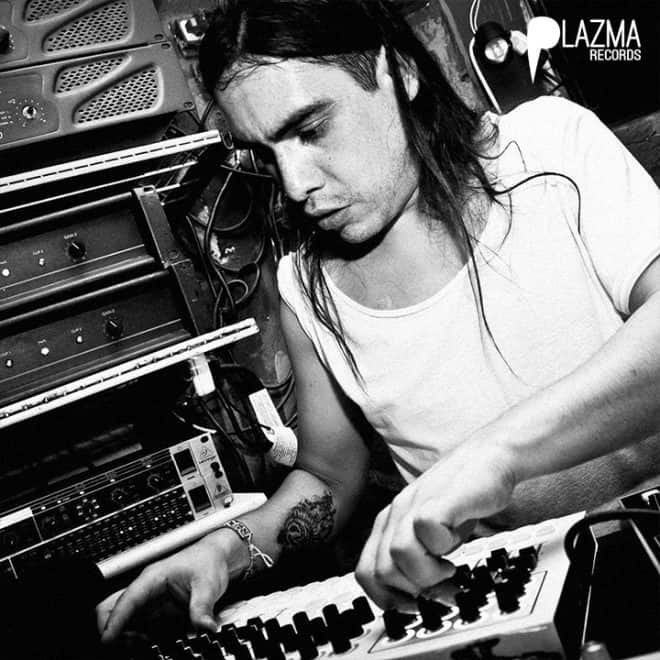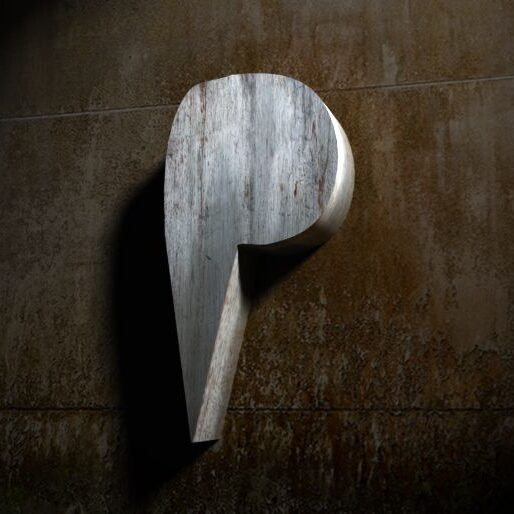
To begin with; where are you now and what is outside the window?
I am in Dallas, Texas, USA. There is a beautiful landscape alive outside of Dallas in the countryside.
May I ask for your full name and where you come from?
Arturo Jiménez Pérez, I come from Mexico.
Can you name a movement or people who pushed you to where you are now?
Talking about my artistic career Marc Houle and Richie Hawtin. If you mean the place where I am living, my beautiful little sister.
Try to imagine, what you would be doing if music was never been introduced to you?
Wow! Well, my father exposed me to music around the age of 3. I cannot contemplate life without music but maybe there is a part of me that wishes I had been a veterinarian. I love animals. Or maybe a mechanic, since I am fascinated by cars. I would also have loved to be a banker, airplane pilot, or some profession where you wear a suit every day. Haha, I used to see my father in a suit every day when he worked and maybe some part of me wishes I have had that lifestyle, but the truth is that I love my profession: I am an audio engineer.
Aside from music, what do you like to do in your free time?
I love nature, being in the countryside surrounded by trees – I find a lot of peace within nature. I feel a strong connection with the indigenous cosmovisions of Mexico and there are some indigenous ceremonies in which I love to take part and connect with myself.
Tell us about your city, what kind of music scene does it have?
I came from a small town called Acambay, and the music scene there is related to regional Mexican music and commercial music. As an audio engineer, I don’t discriminate against any genres. Of course, I am more drawn to electronic music but I like to appreciate and value all kinds of genres.
What is your favorite time of the year, and how does it influence your creativity?
I love spring, seeing the fields full of flowers and everything green. I like to go out to the countryside to appreciate nature to improves my mood. Furthermore, my daughter was born in spring so it is another reason to love it. I especially like to make music in spring, early mornings, as I wake up 5-6AM. This early, I feel the most imaginative, fresh, and my creativity can flow more freely in this time of the day.
What does your typical week usually look like?
When I was in Mexico, I usually played music every day in the morning and almost always worked at some event on weekends. However, here in the USA, life is more complicated. I leave work early and come back late, unfortunately, that’s life on this side of the border.
What does music mean to you and how it evolved since the beginning?
For me, music is a means of expression. It translates into how I feel and think. Formerly, I discriminated against some musical genres and tried to make them less. Now, I understand that it was a closed-minded way of thinking. Therefore today, I try to appreciate every type of music and find the beauty in each genre.
Can you tell us about your debut as a DJ, where did it happen and how did it go?
It’s a bit complicated. Previously, I was very attached to Rock and Psychedelic music of the ’70s. When I went to study audio engineering, it was the time when my classmates introduced me to electronic music, and I began to become attached to electronic genres. I think it was in school, that I had my first DJ shows for my classmates, but professionally I think it was when I went to Europe on tour.
What is the biggest challenge or sacrifice you have made or have to make in doing what you do?
I think the biggest sacrifice was not being with my family and friends. I always liked to smoke marijuana to make music, something that often brought me problems with my parents or friends. I stopped spending time with my friends because none of them smoked. When there were family meals or outings, I didn’t go with my family because I preferred to stay home just so I could smoke and create something. That led me to became a very lonely person. In the end, little by little, I moved away from my family and deeper into the addictions. As crazy as this sounds, only then I found my way in to the career as an artist.
There are bad days for everyone; how do you keep yourself motivated creatively?
Well, I try to smoke some marijuana and concentrate on what I’m doing. But if I have a bad day, the least I want to do is producing music. I’d rather not stay in the studio. Lately, the fact that I release more music, or record companies sign me, or that a music set of mine comes out in some blog is what keeps me creative and gives me the strength to continue doing what I do.
How do you usually prepare before a gig, how much space do you leave for improvisation in your sets?
I usually select the music I like or put out on Tlaloc Records, or sometimes tracks I’ve recently produced, then import it into Ableton and focus on warping the tracks. I love to impress, I guess, I never follow a specific order or playlist. It feels monotonous or pointless to prepare myself several days before. I improvise so the set may be very unpredictable to the listener, but in this way, I am more entertained and have fun. For the public, this tends to be a bit strange. Nevertheless, with all due respect and humility, I play for myself – not for the audience, although I understand that it shouldn’t be like that – it’s about pleasing the audience. In general, maybe that’s why I don’t play much.
What is your standard or most preferred technical setup for the performance?
I play with Ableton Live, my interface, and my controller (Control R), and sometimes when the crowd is more open, I add the model cycles of Elektron and the step sequencer of livid instruments to generate rhythmic patterns and sounds that accompany the tracks. In Mexico, it is complicated, since the audience always wants to listen to commercial music and perfect mixes – something that makes no sense to me. Many times I choose not to play to avoid the pain of dealing with commercial music enthusiasts.
What is one track that never gets old for you no matter how many times you heard it?
“Shine On You Crazy Diamond / Comfortably Numb” by Pink Floyd
For the last one on this note, name three new artists you recently discovered!
Rrose, Feral, Luigi Tozzi
Of course – looking back at the pandemic period, do you have any special moments, personally or professionally, that made an impact on you?
Well, probably losing my job, seeing my parents sick and not being able to go out – I think it had a tremendous impact on me. Interestingly enough, during this period, I started raising chickens in my house it was indeed very nice to see them grow.
The world pandemic. What do you think, how this have changed the music scene until this day? What is going to happen in the next years?
I have always believed that there is a powerful group that manipulates us as a society and sees us as simple pawns in their game. I think, that they caused everything to have control of the masses and generate new political and economic agreements. Therefore, I do not believe that a virus has mutated, as they tell us, from a bat and magically the whole world gets infected.
Without a doubt, musically, this type of imposed control generates new currents, new genres, and new ways of thinking that encourage the liberation of body, mind and soul. Unfortunately, in the coming years, I think this will generate social instabilities and racial and class problems that may lead us to create rebellion. I don’t know, or perhaps they will control us even more, I prefer to pass by and continue with my life.
Mogo, so it has undoubtedly been a friendship. We have been working together since 2015 I believe, right? So please tell us more about your kind of new sound, what inspired you to create this minimal trip?
Yes! We have indeed been working together for quite some time, which makes me happy to see how the label has grown and to see the scope that it has reached. I congratulate you!
Talking about my music, I started making music at a very young age, and obviously, my way of thinking is not the same as it was 10 years ago – without a doubt, this is reflected in the music I create. Although I am still in the same musical current, going to Europe, meeting new people, being exposed to new music genres, and living in different cities have changed how I make and perceive music.
Some people tell me that the music I make now has nothing to do with the music I made before. They have even suggested that I change the name of my artistic project or stop making music as Mogo. However, in my humble way of thinking, people change, the ear changes, ideas change, and the most noteworthy thing is to leave an imprint. My musical career has had ups and downs, but I will always be Mogo.
By the way, I have an apology to some colleagues in the industry with who, unfortunately, we have ended friendships and relationships, but I want them to know, that I will always remember them in the best way possible. We all make mistakes, but the most important thing is to learn from them.
Presently, I am looking for a rawer sound outside of what is established by the mass and commercial genres. I think I try to go against the current, get out of the conventional sounds and create more atypical and rare atmospheres, so I would be able to open up its form a little. To think about music and current genres, I say I am nobody, but maybe together we can make a difference. Thank you very much for the interview and for allowing me to express myself, a big hug to all!



